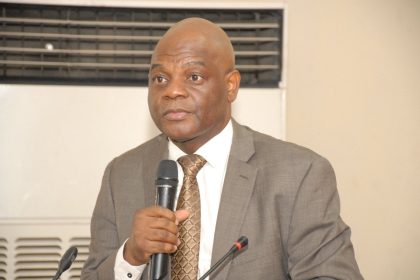
The Tertiary Education Trust Fund has indicated that it is willing to cooperate with business partners to launch a “learn to work” program on Nigerian campuses, giving Nigerian students job prospects in outsourcing while they are in school.
The program, which will connect eligible students with businesses throughout the world, may ensure their employment as soon as they complete their education.
The Fund’s Executive Secretary, Sonny Echono, revealed this information at a Monday meeting in Abuja with the leadership of the National Association of Nigerian Students, according to a statement signed by the Fund’s Director of Public Affairs, AbdulMumin Oniyangi, on Tuesday.
“A big programme coming to you on campus,” was how he put it.
“This program will ensure that you would be given the opportunity to be trained in various areas of ICT and technology while you are doing your own academic programs in various subject areas,” Echono continued. “It will also connect you with global companies so that you can get outsourcing work while you are in school and you will earn significant income.”
Thus, for the students who will enrol in this program, which is set to begin nationally very soon. We are helping every institution to set up the environment in which these students are learning.
He added that 24 million Indian students were receiving these monies while attending school, and that students from other nations, including Vietnam, India, Cambodia, and China, were already benefiting from the scheme.
“Learn to work will provide Nigerian students the opportunity to be able to earn a living even while they are working and to be guaranteed employment as soon as they graduate from school,” he said.
“This phenomenon is observed throughout Africa, including Tanzania, Rwanda, South Africa, Egypt, Morocco, and Algeria.”
The head of TETFund added that no Nigerian student should be forced to drop out of school due to their parents’ financial situation, which is why the government recently introduced the student loan program.
He went on to say that after the program is put into place, the partners will go to the schools and give aptitude tests to the pupils in order to identify those who can match their requirements and then put them through training.
He states that the training will include more than 40 subjects and that the curriculum has been defined and tailored to the requirements of the specific sector and industry. He also notes that hiring is a problem for many businesses nowadays.
He added that the engagement would not be restricted to Abuja and Lagos, but would instead be extended to all postsecondary educational institutions in the nation.
When discussing the revenue of universities, he stressed that “when you say Institutions: universities, polytechnics, and colleges of education should start contributing 50% IGR, they really don’t have IGR.” He defined the education sector as a social sector rather than one that generates income.
“These are merely service fees that are significantly lower than what they need to run their business, and if you try to take that one away from them as well, you are asking them to start charging our own students and to shift that burden.”Thus, once more, our father has advised against billing the schools for it. Thus, once more, we sincerely thank Mr. President for it. He is considering and taking on a great deal of work for the students.
Regarding the availability of electricity on campus, he stated that the TETFund has started discussions with pertinent parties, including the Ministry of Power, in order to find a solution for the problem of power supply in its beneficiary establishments.
“We will address it as one of the main concerns when we call a meeting of all school heads to discuss major stakeholders.” We must collaborate to determine how to have alternate power sources that will lighten the load.Some universities are currently receiving electricity bills of N300 million to N400 million in a single month. How are they going to manage? For some, there is just four hours of light every day; they are even on rations.
Thus, all of the topics we are discussing here are ways to enhance your educational experience, including having access to the internet, learning resources, and instructional materials. How are you going to be able to achieve that without power?We are putting in a lot of effort to make sure that the problem of power on campuses is resolved. We are considering every option available to us,” he remarked.
In case there is a nationwide protest, he also urged the students to keep an eye on their campuses to prevent thugs from breaking in and wreaking havoc.
Speaking at the same time, Comrade Lucky Emonefe, the National President of NANS, stated that the organisation has decided not to participate in the nationwide demonstration after hearing President Bola Tinubu’s message about his love and commitment to education.
Emonefe claimed that the government’s negotiations with the Academic Staff Union of Universities, or ASUU, demonstrated their commitment to maintaining an academic calendar that has stabilised the institutions over the past year.
He observed that a lot of individuals were upset and considering organising Nigerian students on their various campuses for a nationwide demonstration. Nevertheless, NANS will not be attracted to the demonstration because it is unlikely to be successful.
“We’ll inform our people about the administration’s actions through the top-notch intervention agency, TETFund,” he declared.

